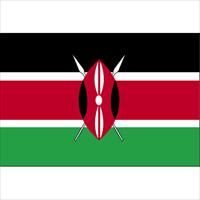KENYA: "Revenge attacks and rumours" fuelling hostilities in Molo

Revenge attacks, rumours, inaccurate media reports and provocative public statements by politicians have fuelled hostilities in Kenya's New Molo district, where clashes have displaced thousands of people and caused dozens of deaths, according to a government official.
"As a result of the tension among the three communities in the district, opportunists have taken advantage of the fluidity of the situation to fuel hostilities," Mohamud Salim, the district commissioner, told a UN delegation in Molo town.
"The problem now is that many people have fled their homes," he said. "We do not have an exact number of the displaced as we are still collecting the data but many of the IDPs [internally displaced persons] are now in at least 20 sites in and around Molo town."
Kenya Red Cross Society (KRCS) estimates that at least 3,000 families, or 15,000 people, have been displaced in the violence. At least 500 IDPs have sought refuge at a church compound, a few metres from the DC's office.
“I fled my home more than a week ago together with my husband and four children. We slept in the open the first night at Keringet police station,” Ann Wacu, 24, said. She is one of the IDPs at the Apostolic Church compound.
Clashes erupted in the district in late September, following accusations and counter-accusations among the three communities, the Kalenjin, Kikuyu and Kisii. Since then, at least 24 people have been killed, hundreds of houses burnt and thousands of people displaced.
Salim said the problems facing the IDPs included poor sanitation, lack of adequate shelter and food.
Political observers trace the tension and suspicion among the three communities to 1992, also an election year, when politicians incited the groups against each another, promising them the land of their neighbours, who they attacked before fleeing.
"I don't call them tribal clashes because these people have co-existed together peacefully for a long time," Salim said. "The current tension is due to the tribal mentality that took root in 1992 and has made the communities lose trust and respect amongst one another. When someone commits a crime, that person should be dealt with as an individual, not the tribe."
KRCS, Médecins Sans Frontières (MSF-Spain) and local government officials are providing relief aid to the displaced, most of whom have fled to urban areas in the district.
In a bid to reduce the violence, public meetings with local leaders have been held while security has been beefed up with an increase in the number of police in the district.
Jeanine Cooper, head of the Kenya office of the UN Office for the Coordination of Humanitarian Affairs (OCHA), who led the inter-agency mission to Molo, said the purpose of the visit was to support efforts towards conflict-resolution and peace-building on the ground.
"Insecurity is a product of violence and fear, so even when you don’t have violence, the same displacement of people could occur because of fear," she said. "As the UN, we'll put together a joint programme on conflict and displacement for the areas affected by conflict in the country and this trip will guide what we do in the programme.”
She said the situation in Molo required both short-term solutions, such as emergency response to the IDPs' needs, and long-term interventions, such as peace-building and civilian protection.
"We hope to design a programme in the next few weeks to tackle the short-term needs as well as put in place plans for the long-term interventions," she said.
 Back and Next - Back and Next
Back and Next - Back and Next See Also - See Also
See Also - See Also